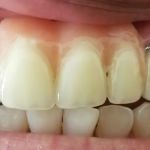1. Common Causes of Chronic Gum Pain
Chronic gum pain can be caused by a variety of factors, many of which are related to oral health. Some of the most common causes include poor dental hygiene, infections, and trauma to the gums. Chronic pain may also be a result of untreated dental issues like cavities or abscesses. Over time, these conditions can lead to more serious problems, such as gum recession or even tooth loss. Understanding the underlying causes is the first step in finding effective solutions.
2. Gum Disease and Its Role in Chronic Pain
Gum disease, or periodontitis, is one of the most frequent culprits behind chronic gum pain. This condition occurs when plaque and tartar build up along the gum line, leading to inflammation and infection. If left untreated, gum disease can cause severe discomfort and damage to the soft tissues and bone that support your teeth. Early symptoms of gum disease include red, swollen gums, bleeding when brushing, and persistent bad breath. Treating gum disease promptly is crucial to prevent further pain and complications.
3. The Importance of Oral Hygiene in Preventing Pain
Maintaining good oral hygiene is essential for preventing chronic gum pain. Brushing your teeth at least twice a day, flossing daily, and using mouthwash can help eliminate plaque and bacteria that contribute to gum problems. Additionally, using a soft-bristled toothbrush and being gentle when brushing can prevent gum irritation and reduce pain. Regular dental checkups are also important for catching any potential issues early, ensuring that your gums remain healthy and pain-free.
4. Lifestyle Factors Contributing to Gum Pain
Several lifestyle factors can exacerbate chronic gum pain. Smoking, for example, is known to significantly increase the risk of gum disease and other oral health issues. Additionally, poor nutrition, especially a diet high in sugary or acidic foods, can lead to tooth decay and gum inflammation. Stress is another factor that can contribute to oral health problems, as it may cause teeth grinding, which can irritate the gums and cause pain. Managing these factors is key to reducing gum discomfort and preventing chronic pain.
5. Effective Treatment Options for Chronic Gum Pain
If you're experiencing chronic gum pain, there are various treatment options available. Non-invasive treatments, such as professional cleanings and antibiotics, can help treat gum infections and alleviate pain. In more severe cases, your dentist may recommend scaling and root planing, a procedure to remove plaque and tartar from beneath the gum line. For persistent cases of gum disease, surgical interventions may be necessary to restore gum health and relieve pain. Your dentist will determine the most appropriate treatment based on the severity of your condition.
6. When Should You Consult a Dentist?
If chronic gum pain persists despite good oral hygiene practices, it’s time to see a dentist. Ignoring the pain or delaying treatment can lead to more serious issues, including tooth loss. If you notice other symptoms, such as swelling, pus, or a bad taste in your mouth, it's essential to seek professional help immediately. A dentist will perform an examination to determine the cause of your gum pain and recommend an effective course of treatment to relieve your discomfort.







 Dental Solutions of Deptford4.0 (647 review)
Dental Solutions of Deptford4.0 (647 review) Silver Lake Dental Care: Andrew Sholudko, DMD4.0 (113 review)
Silver Lake Dental Care: Andrew Sholudko, DMD4.0 (113 review) Dentistry at 1818 Market Street4.0 (686 review)
Dentistry at 1818 Market Street4.0 (686 review) EON Clinics4.0 (24 review)
EON Clinics4.0 (24 review) New Millennium Dental Group3.0 (30 review)
New Millennium Dental Group3.0 (30 review) Amber L. Pearson, DDS3.0 (2 review)
Amber L. Pearson, DDS3.0 (2 review) The Importance of Oral Health Education During Pregnancy for a Healthy Pregnancy
The Importance of Oral Health Education During Pregnancy for a Healthy Pregnancy Best Tips for Brushing Your Teeth Properly for Healthy Gums: Essential Techniques for Oral Health
Best Tips for Brushing Your Teeth Properly for Healthy Gums: Essential Techniques for Oral Health Why Skipping Dental Checkups Can Lead to Bigger Oral Health Problems
Why Skipping Dental Checkups Can Lead to Bigger Oral Health Problems Advantages of Porcelain Dental Restorations
Advantages of Porcelain Dental Restorations How Can Diabetes Cause Tooth and Gum Problems? Preventing and Managing Oral Health Issues
How Can Diabetes Cause Tooth and Gum Problems? Preventing and Managing Oral Health Issues Healthy Habits for Promoting Good Oral Health and Hygiene: Tips for a Healthy Smile
Healthy Habits for Promoting Good Oral Health and Hygiene: Tips for a Healthy Smile